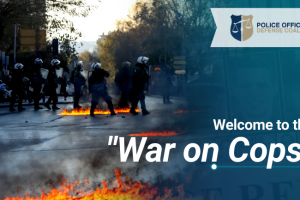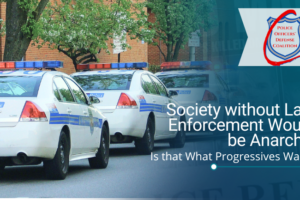By Bert Eyler, President of Police Officers’ Defense Coalition
Qualified Immunity is a legal principle of federal law which establishes a standard of judgement for law enforcement officers in their trials. This is upheld in order to grant the men and women working in law enforcement specific protections which shield them from being held responsible in cases of justified violence against perpetrators. This standard has generally been upheld in a little more than half of all cases tried in the last ten years; with 54% of cases ending in favor of qualified immunity from the years 2010-2020.
Common patterns in cases that are approved in support of Qualified Immunity function on several premises. These are determined on the basis of having no clear precedent in prior situations, officers’ split-second decision making, mistaken but reasonable belief, and a lack of malicious intent. It is necessary that judges take into account the ever-shifting nature of circumstances and crime, and especially the danger and high-risk daily encounters law enforcement officers have to deal with.
The supreme court case Kisela vs. Hughes is one such instance of qualified immunity being granted. Kisela, a Tucson police officer, shot Hughes who was holding a knife and brandishing it near another woman. Kisela believed Hughes was a threat, as she was acting erratically. When Kisela fired, Hughes had refused to drop the knife after at least two commands to do so. Her injuries received from the shot were not life-threatening. All officers on scene stated that they believed Hughes to be a threat to those around her. Hughes survived and sued, alleging excessive force. The supreme court ruled in favor of the officer, stating that a violation to the fourth amendment was “not at all evident” entitling Kisela to qualified immunity. As Kisela only had seconds to assess whether Hughes was a threat to the woman she was stepping towards, she reacted out of protection and regard for the other person, operating justly in this case of potential danger.
On the contrary, qualified immunity has been rightfully denied in situations when the officers have relied upon faulty information or withheld evidence from the court in order to convict a particular suspect. In 2021, Detective Jaquelyn Thomas from Mississippi arrested Desmond Green for capital murder based on information from an individual who later recanted his statement, saying that he had no knowledge of the murder due to being intoxicated on drugs. After two years in jail, Green sued Detective Thomas and the judge refused to grant qualified immunity as Thomas also withheld several key pieces of evidence from the court in support of Green’s innocence. In this situation, Detective Thomas relied on an uncorroborated testimony from an informant who was high on methamphetamine and it is clear that Thomas acted without integrity on behalf of a suspect, and therefore must not be protected by qualified immunity. An officer cannot avail themselves of a qualified immunity defense if he procures false identification by unlawful means or deliberately conceals exculpatory evidence, for such activity clearly violates constitutional principles.
Such as in Green v. Thomas (2021), common denials of Qualified Immunity focus on arrests based on unreliable information or clear factual disputes, use of excessive force against non-threatening or restrained individuals, inhumane or degrading prison conditions paired with deliberate medical neglect. All of these scenarios indicate a lack of effort or duty of care on behalf of the officers, as well as malicious intent to care for the civilians.
There are certainly situations that need legal attention in which this behavior is evident, however, the majority of qualified immunity cases revolve around officers who were simply trying to protect themselves and other citizens from harm, and had to act quickly with their best judgment of the situation. These men and women should not be demonized but lauded by the public for their bravery and tenacity in the face of constant criticism and danger. Yet consistently these officers are wrongfully charged and their families are made to suffer through legal trials, financial strain, and sometimes imprisonment. It is time that there is a clear standard for protecting the individuals who wear the badge and risk their lives for the betterment of their communities.




Leave a Reply
Your email is safe with us.